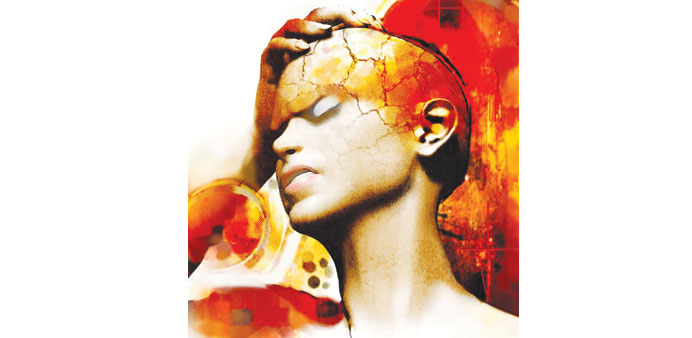By Eva Dignoes/DPA
A swollen, throbbing finger when a splinter lodges in the skin, a stomach ache after eating greasy food or headaches from too much sun are signals from your body that something is wrong. When you recover, the pain goes away.
But some people find that pain persists even after the cause has been treated and cured. The phantom pain can become chronic and for many victims, it is often a life-long, tormenting companion.
“We speak of chronic pain when it persists past the point where you’d expect the cause to have cleared up,” says Gerhard Mueller-Schwefe, president of the German Association for Pain Medicine (DGS).
The mechanisms have been scientifically studied and are now largely understood: “A repeated experience of pain can alter the way the nerves transmit signals. The nerves begin to react to even the tiniest irritant or they even create signals without an irritant.”
Even being touched gently can hurt a chronic-pain sufferer. Or pain occurs without any evident cause.
Mental stress can also play a role. “It can degrade the filtering function in your nervous system that normally lets only the important signals through, so that you get the full panoply of raw signals,” explains Mueller-Schwefe.
This plunges victims into a frustrating tour of consultations with one doctor after another.
Heike Norda’s odyssey began with a bicycle accident. She had to have multiple operations on her injured knee and ended up with a damaged nerve as a result of one operation, says the founder and director of the self-help group, Chronic Pain, in Neumuenster in northern Germany.
Since that eventful operation, she has been in pain every single day for the past 30 years. And she has consulted all kinds of doctors in the hope that someone would eventually diagnose the cause and ease her pain.
“But the imaging procedures revealed nothing,” she says, adding: “Taking strong painkillers with huge side-effects was the only way to cope with everyday life somehow.” A turning point came during a stay in a pain clinic.
“A doctor told me: ‘You will have pain life-long. So you will have to learn to control it and not let the pain control you’.”
Winfried Meissner, director of the Pain Therapy Sector at the University Hospital of Jena, often has to quell his patients’ hopes that the pain will disappear with the right treatment.
“The aim of the treatment is not to stop the pain - that will not happen if the pain is chronic,” he explains, adding, “The emphasis is instead on training victims to cope with their illness and to show them activities that make them feel better and able to perform again.”
Can chronic pain be prevented? The important thing is to suppress acute pain quickly as soon as it happens, Mueller-Schwefe stresses.
“That’s the only way to prevent faulty learning processes initiating themselves in the brain and leading to chronic pain.”
Chronic pain is often not taken seriously in society, says Norda, speaking from her experience.
“As a chronic-pain patient, you have to constantly be explaining the issues to doctors, your friends, your family and your employer.
“There’s nothing outwardly visible that alerts them to why you are feeling unwell.”
Learning as much as possible about her illness helped.

